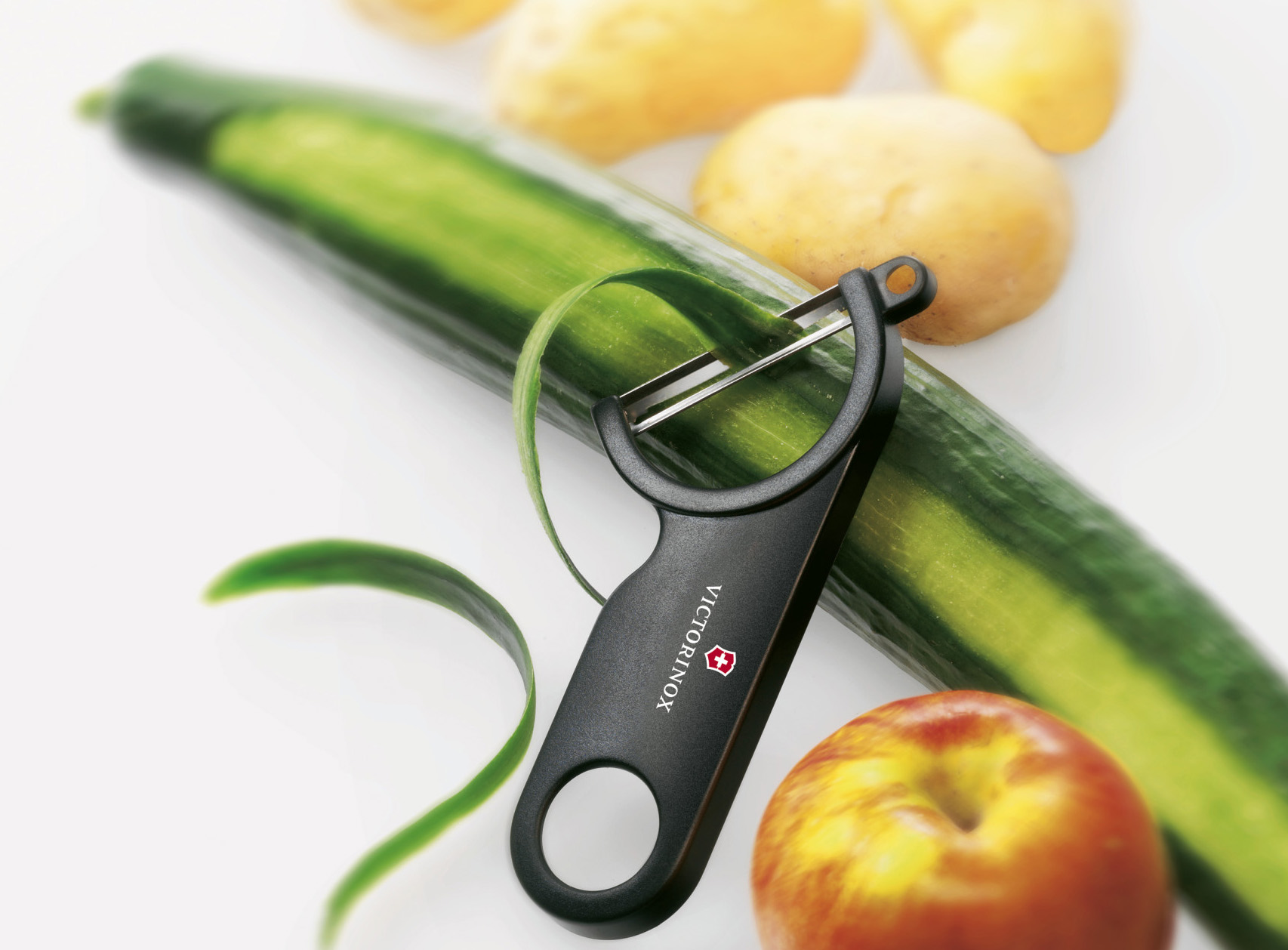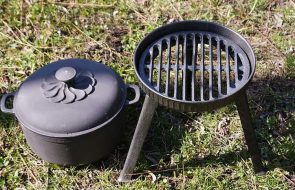Vegetables and fruits have become an integral and important part of the daily diet. Very often, in order to prepare dishes from them, they need to be cut. Today you can find a wide variety of knives for cutting fruits. Let's figure out what their features are and what types they are.
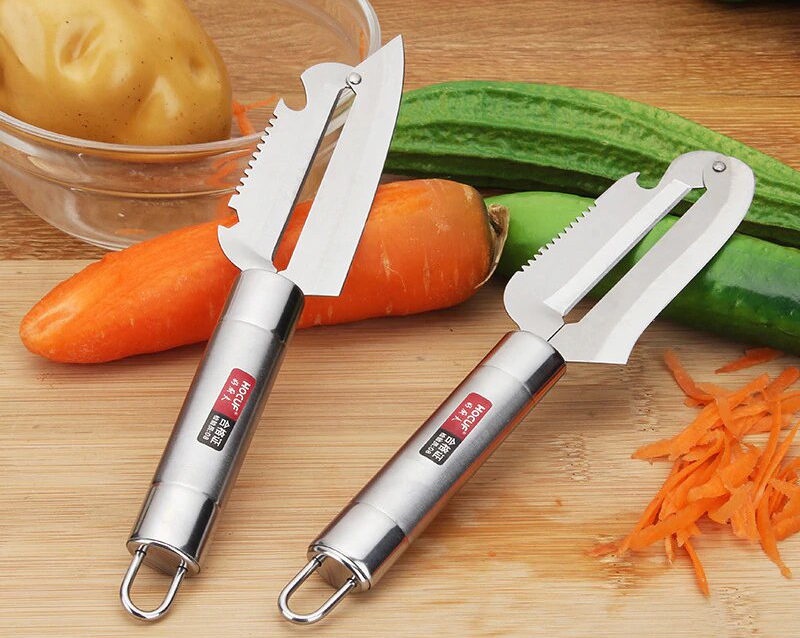
Content
- Features of knives for cutting vegetables and fruits
- What types of vegetable knives are there?
- Universal knife for vegetables and fruits
- Zigzag knife for vegetables
- Japanese vegetable knife
- The Usuba Family of Fine Cutting Knives
- Regional Japanese Models
- Recommendations for choosing a knife for vegetables and fruits
- VIDEO: Fruit and vegetable knife – detailed review.
Features of knives for cutting vegetables and fruits
It is quite difficult to give a general description of all types of cutting tools for cutting various fruits. They are all different in size, shape and purpose. This is their main feature.
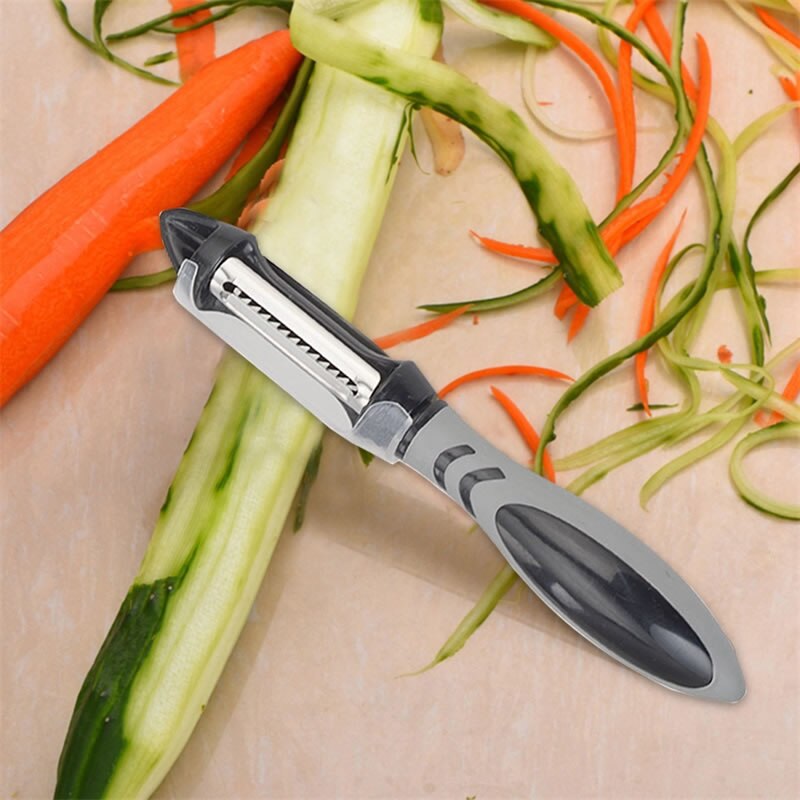
However, any knife for cutting vegetables and fruits should have the following parameters.
- Dimensions. The device should not be large in size, so that it is comfortable to hold in your hand. Most fruits require a small knife, the exception may be large fruits and vegetables (pumpkin, melon, etc.).
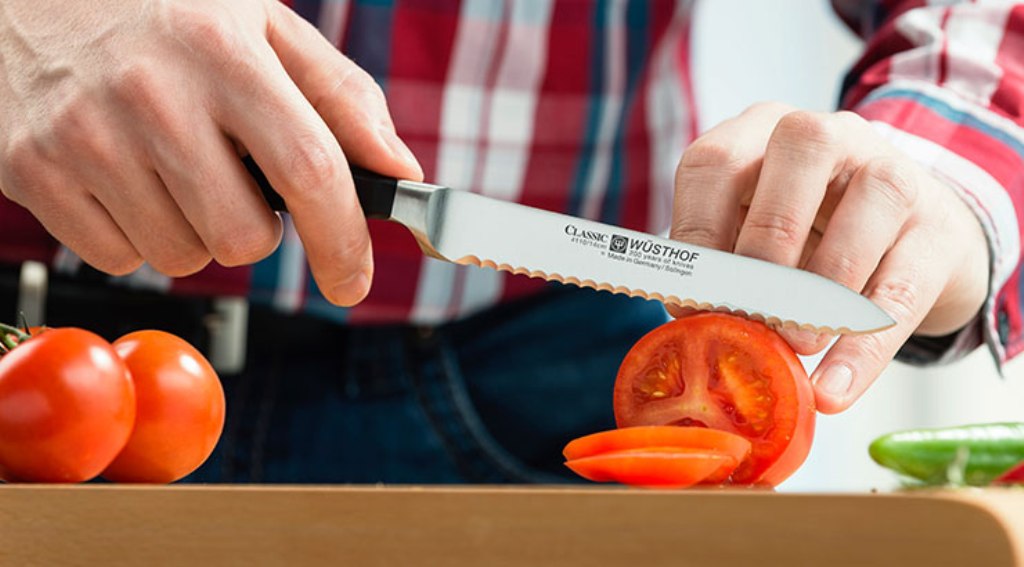
- Thin blade. This requirement applies to almost all knives for vegetables and fruits, since the products being cut do not have a dense structure and a thick blade is not required here.
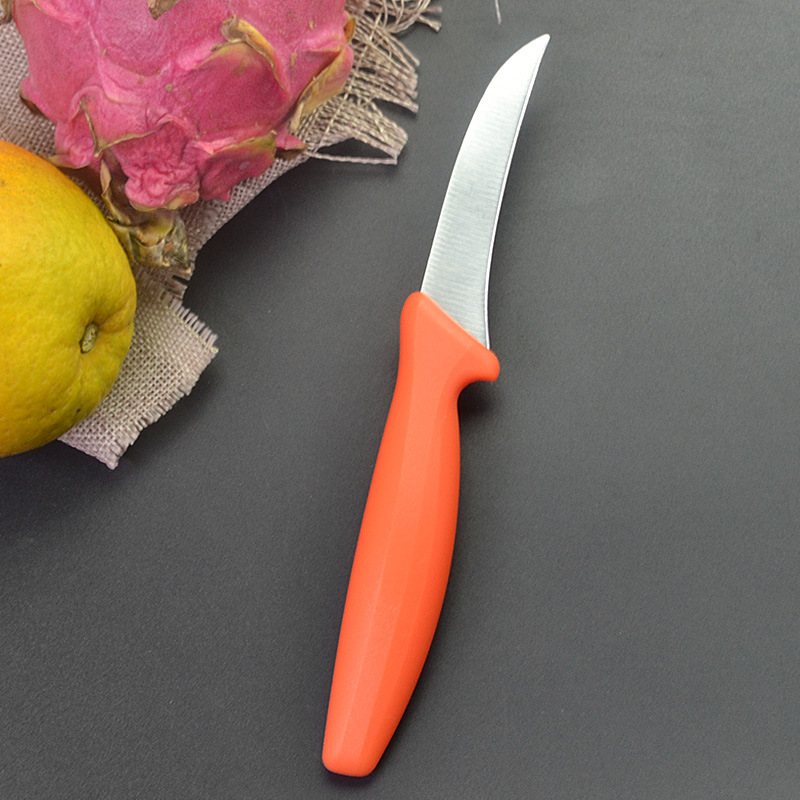
Such a kitchen knife, like any other, consists of a handle and a blade. The materials for their manufacture can be very different.
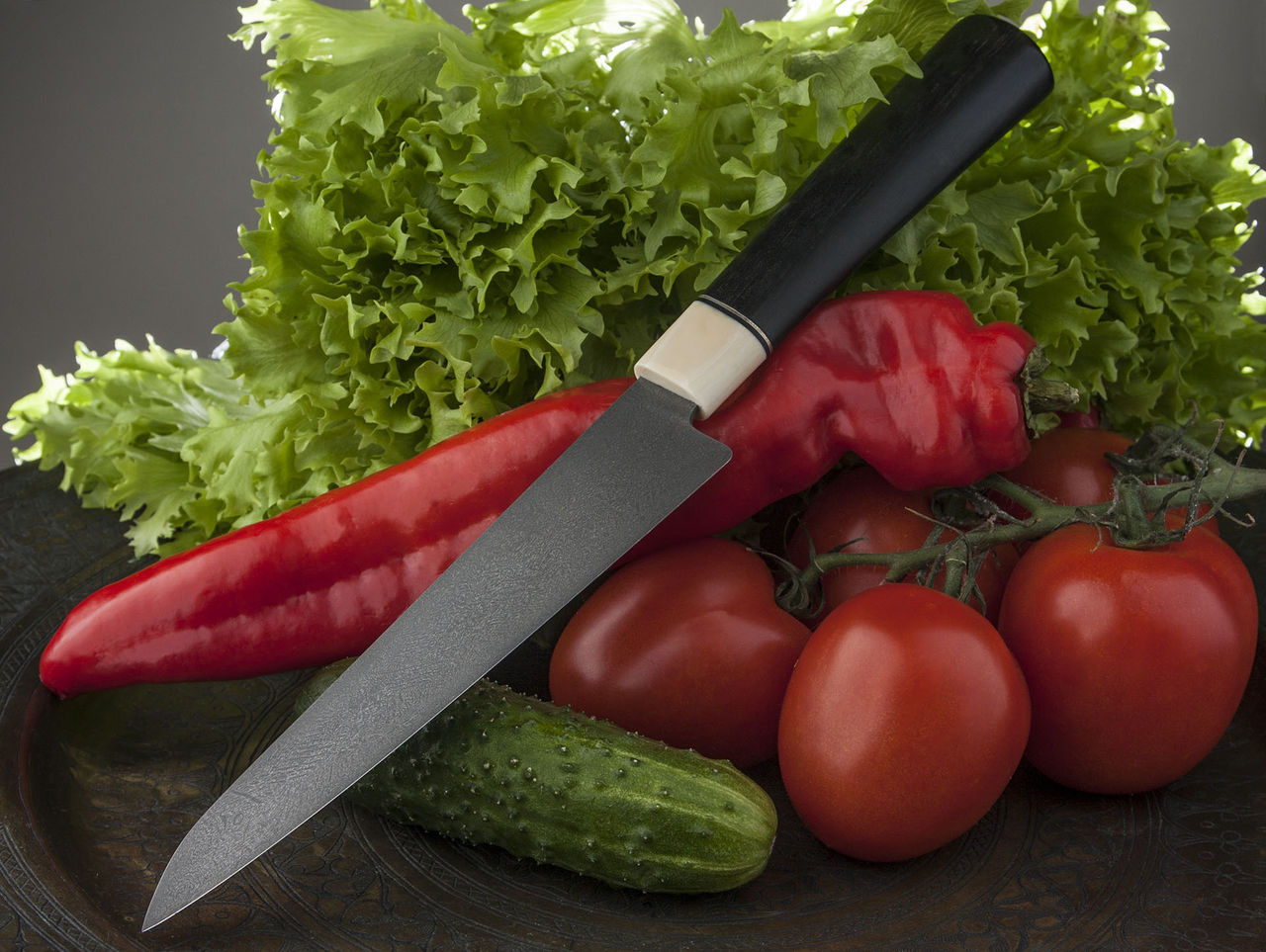
What types of vegetable knives are there?
According to their purpose, vegetable knives are divided into 2 types:
- for cleaning;
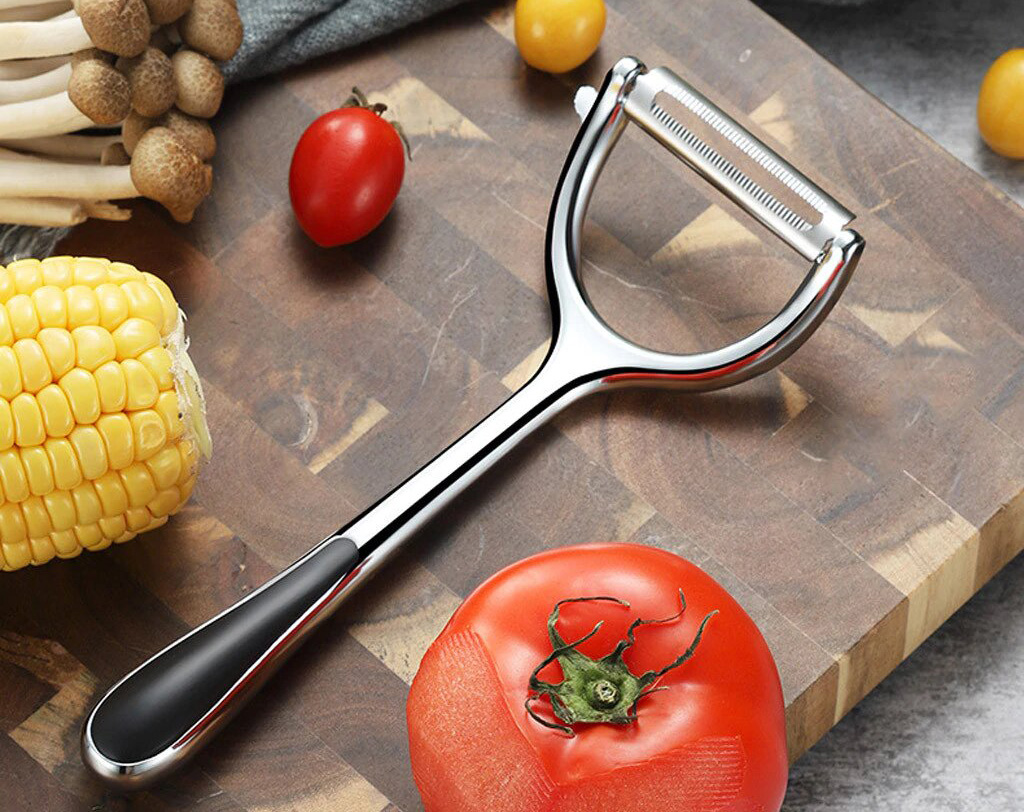
- for cutting.
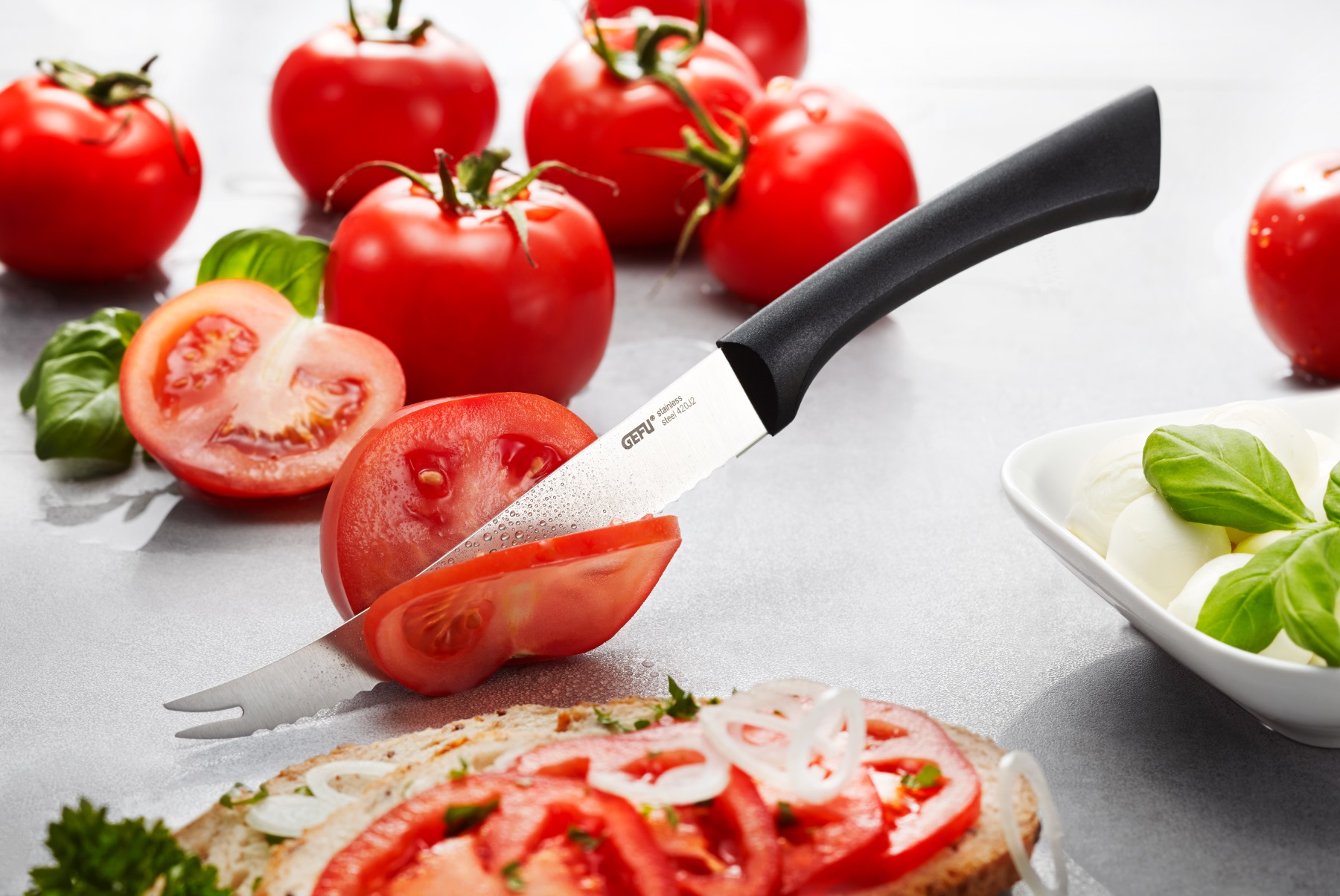
They are completely different in the type of blade, shape and properties. However, any housewife needs both tools, because first the vegetables need to be cleaned and then cut. There are other types with which you can beautifully cut fruits.
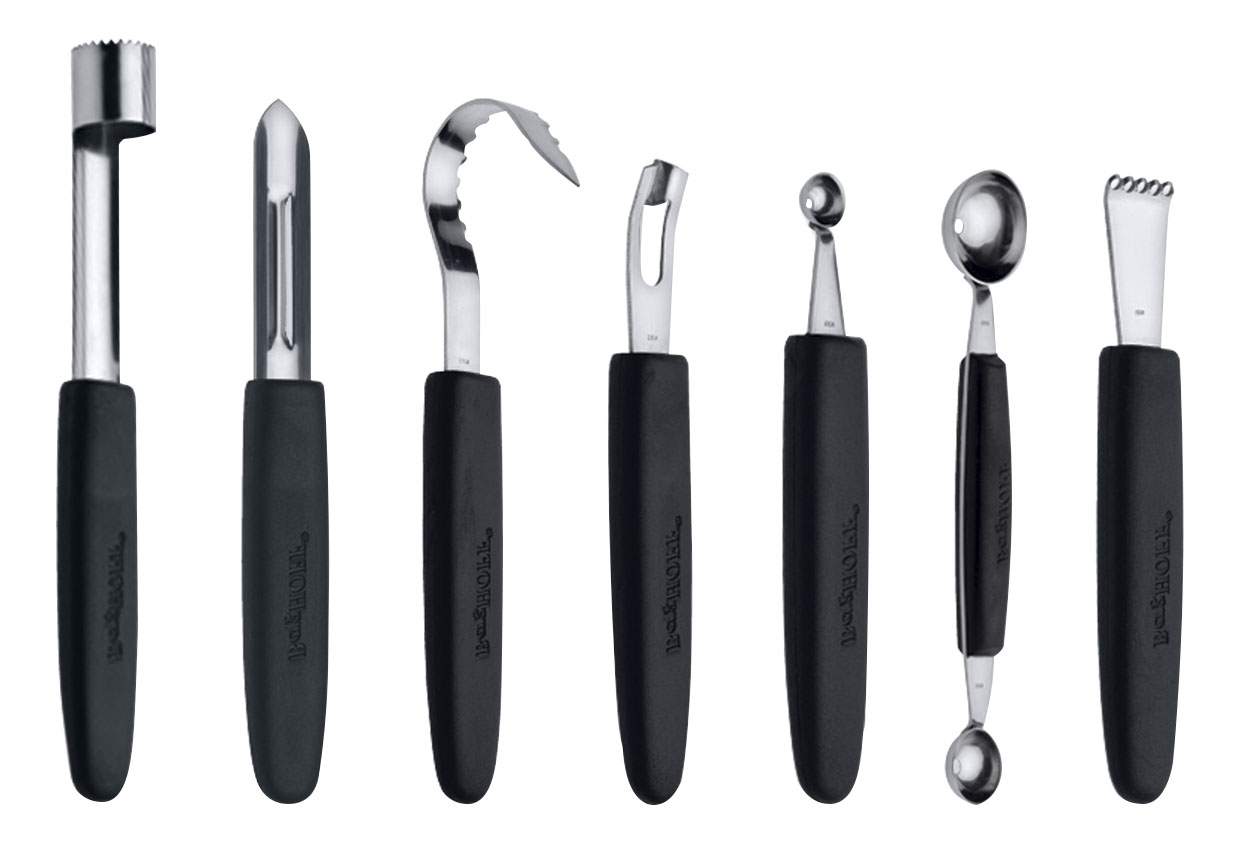
The following knives are distinguished:
- for spiral cutting;
- straw slicer;
- for cutting even circles;
- wavy edge;
- flower making molds;
- Long spiral machine.
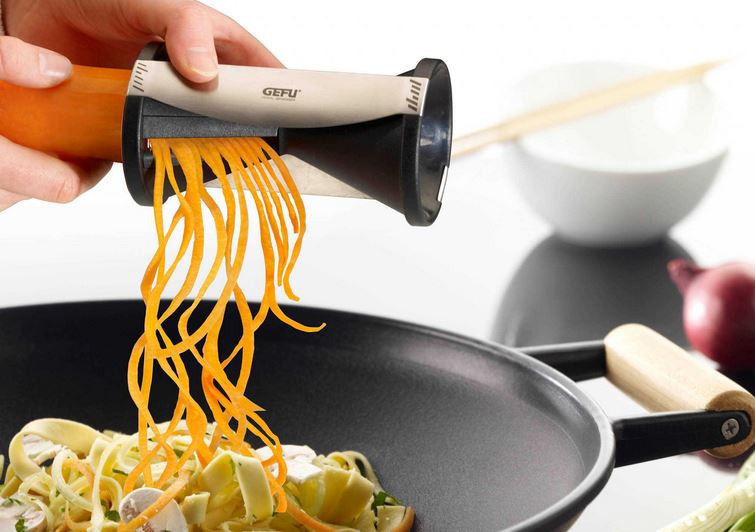
Universal knife for vegetables and fruits
It is a must-have in the kitchen. The tool is suitable for peeling, cutting and shredding fruits. Its blade is sharpened on both sides and has medium dimensions. It is a universal knife that can be used even by a left-hander.
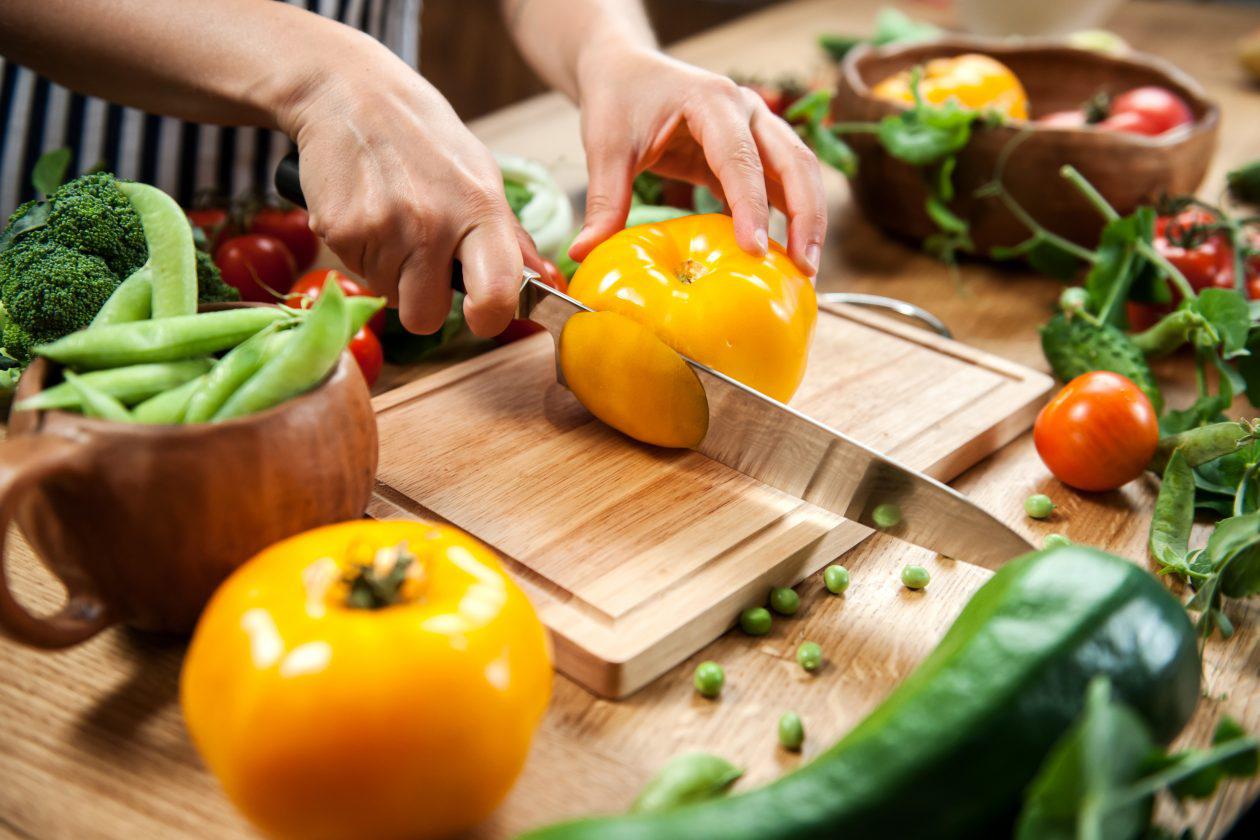
Note: For tomatoes, it is better to use a cutting tool with small teeth, which can easily cut the skin without squeezing it.
Zigzag knife for vegetables
A zigzag vegetable knife allows you to cut fruits so that their edges resemble a wave. This effect is achieved thanks to a special blade with a corresponding profile. Mechanical and electric devices are sold, which include many additional functions. Basically, such a multifunctional device is used in catering establishments.
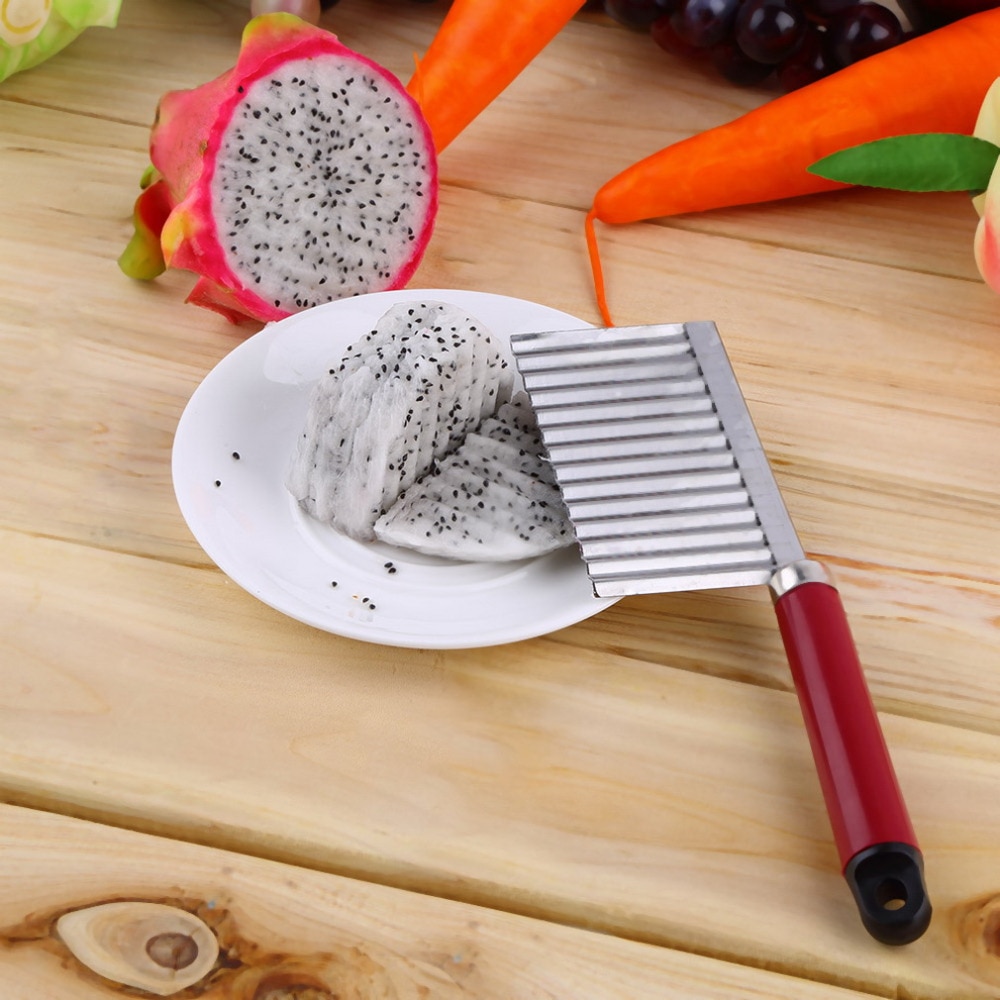
A more economical version of such a device for cutting fruits with wavy edges is a standard cutting tool with a modified blade. In appearance, it resembles a small hatchet, since the blade is wide and has a square shape. The tip itself is wavy.
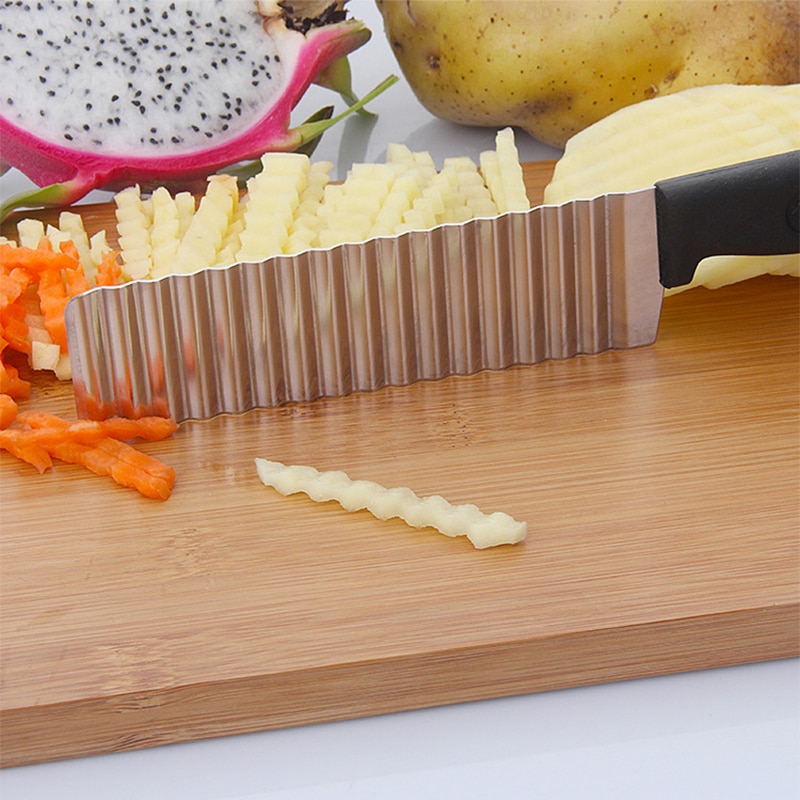
It won't take up much space in the kitchen and is suitable for all types of fruits and vegetables.
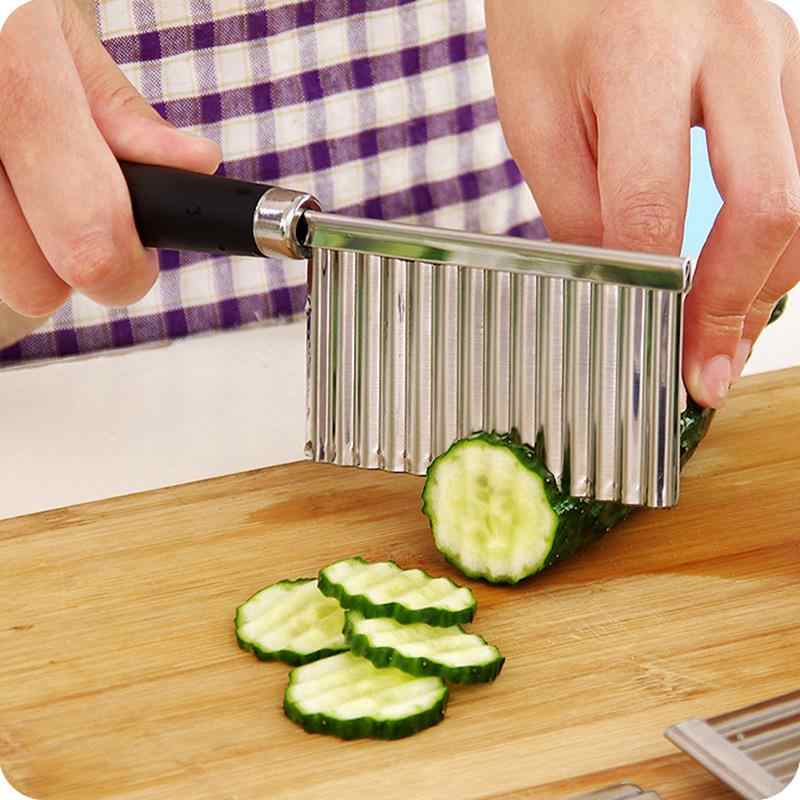
Japanese vegetable knife
The Santoku knife is very popular among both housewives and professional chefs. It has an attractive appearance and excellent characteristics. It is convenient to use, and all thanks to the balance of the handle and blade. Cutting food with a Japanese knife is not difficult. Another advantage is its versatility.
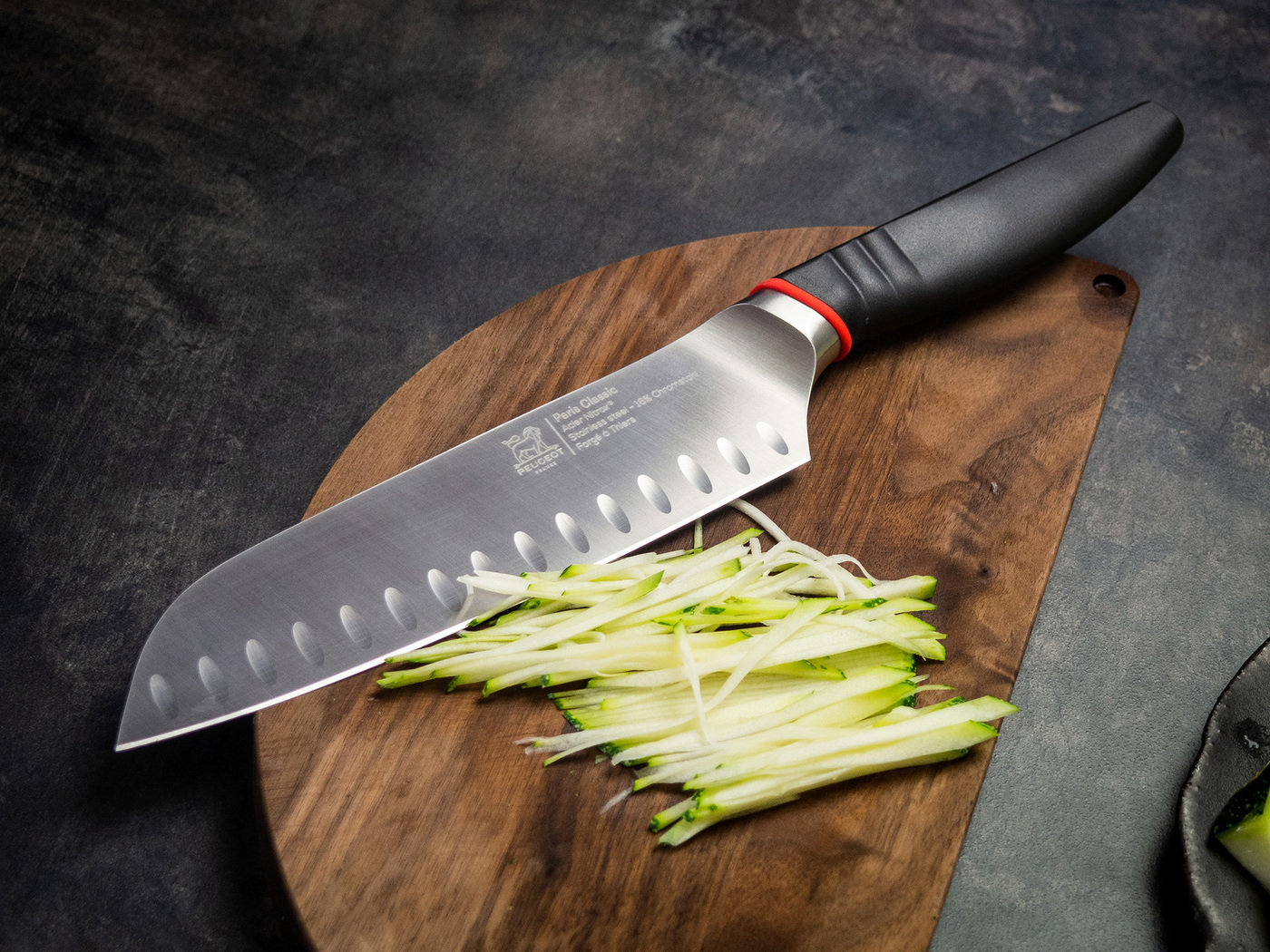
The Usuba Family of Fine Cutting Knives
"Usuba", which means "thin", can rightfully be considered one of the main tools in a professional Japanese kitchen. In fact, it is, because the slices of vegetables cut with it are almost translucent in the light.
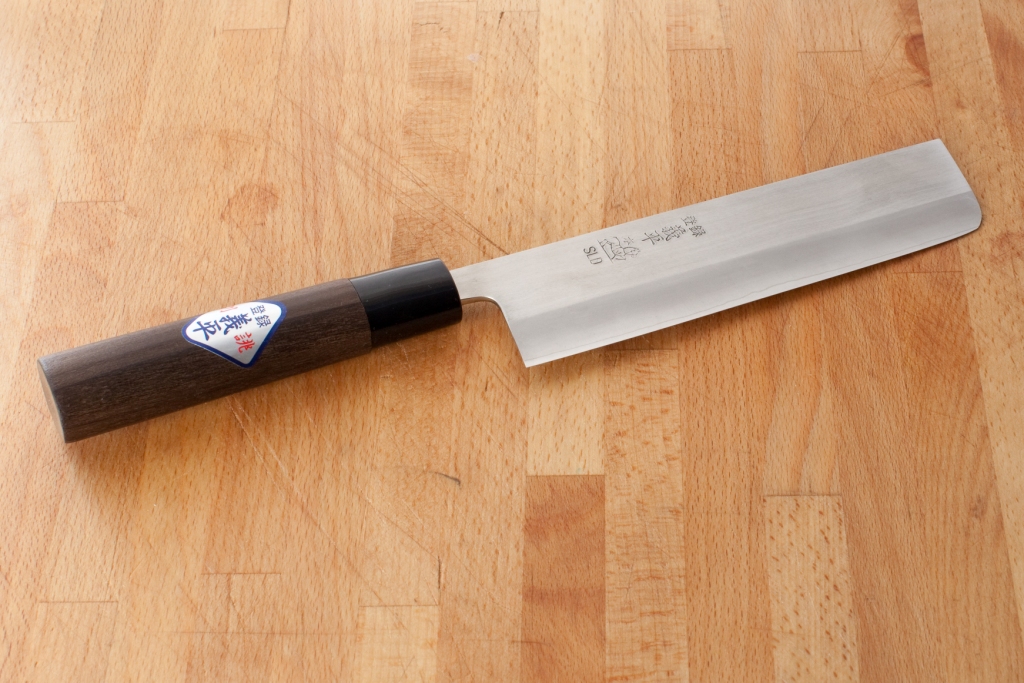
"Usuba" is a large long knife, the length of which is usually from 180 mm to 240 mm, but sometimes there are also 130 mm long. But its distinctive feature is not the size, but rather the ratio of the width of the blade and the handle.
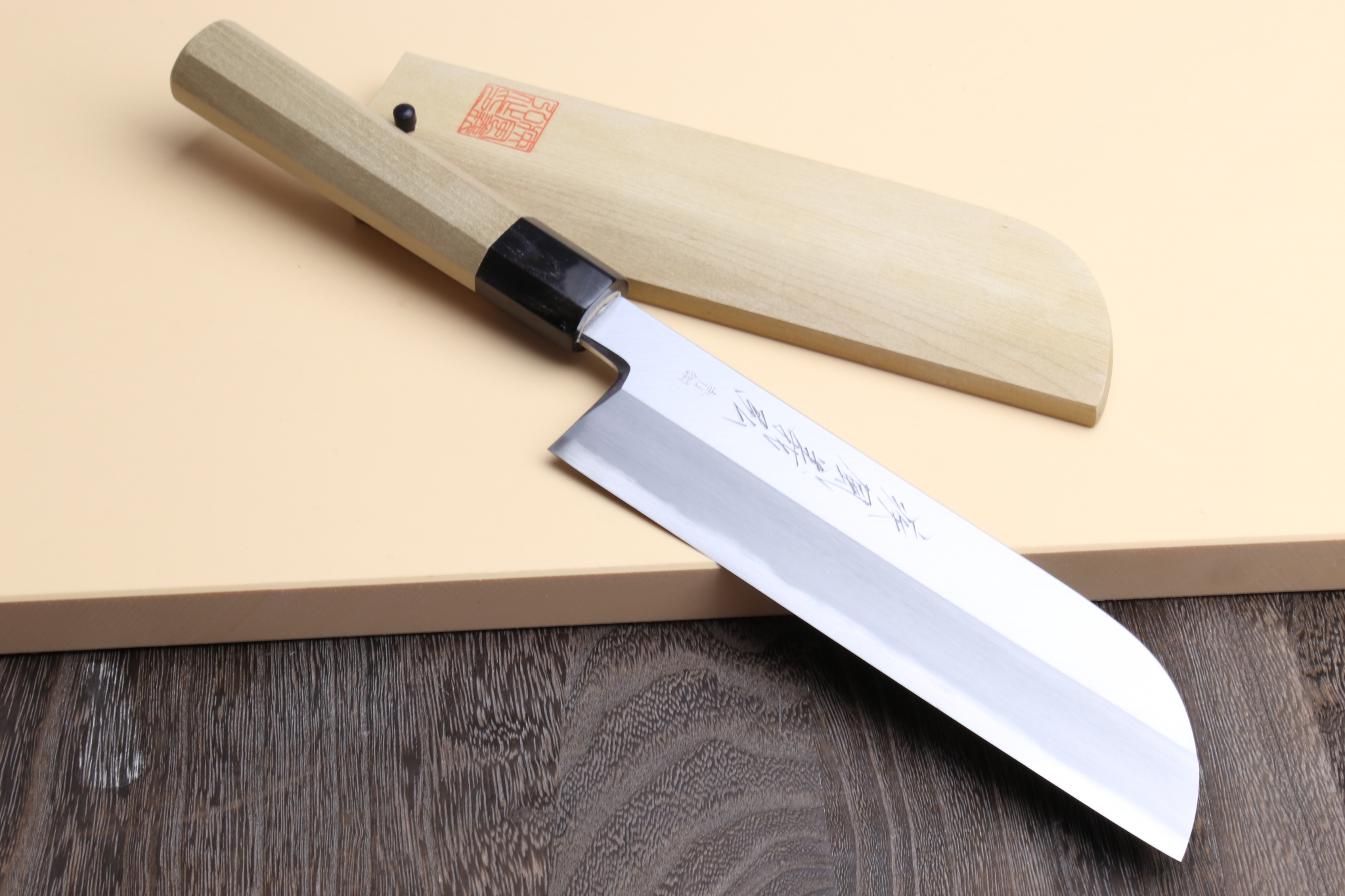
"Usuba" is more like a small hatchet used for chopping bones. Their main difference is the line of the butt descending perpendicular to the cutting edge. However, it will not be possible to chop bones with it, the thin edge simply will not withstand. An inexperienced person can damage the blade if cutting incorrectly.
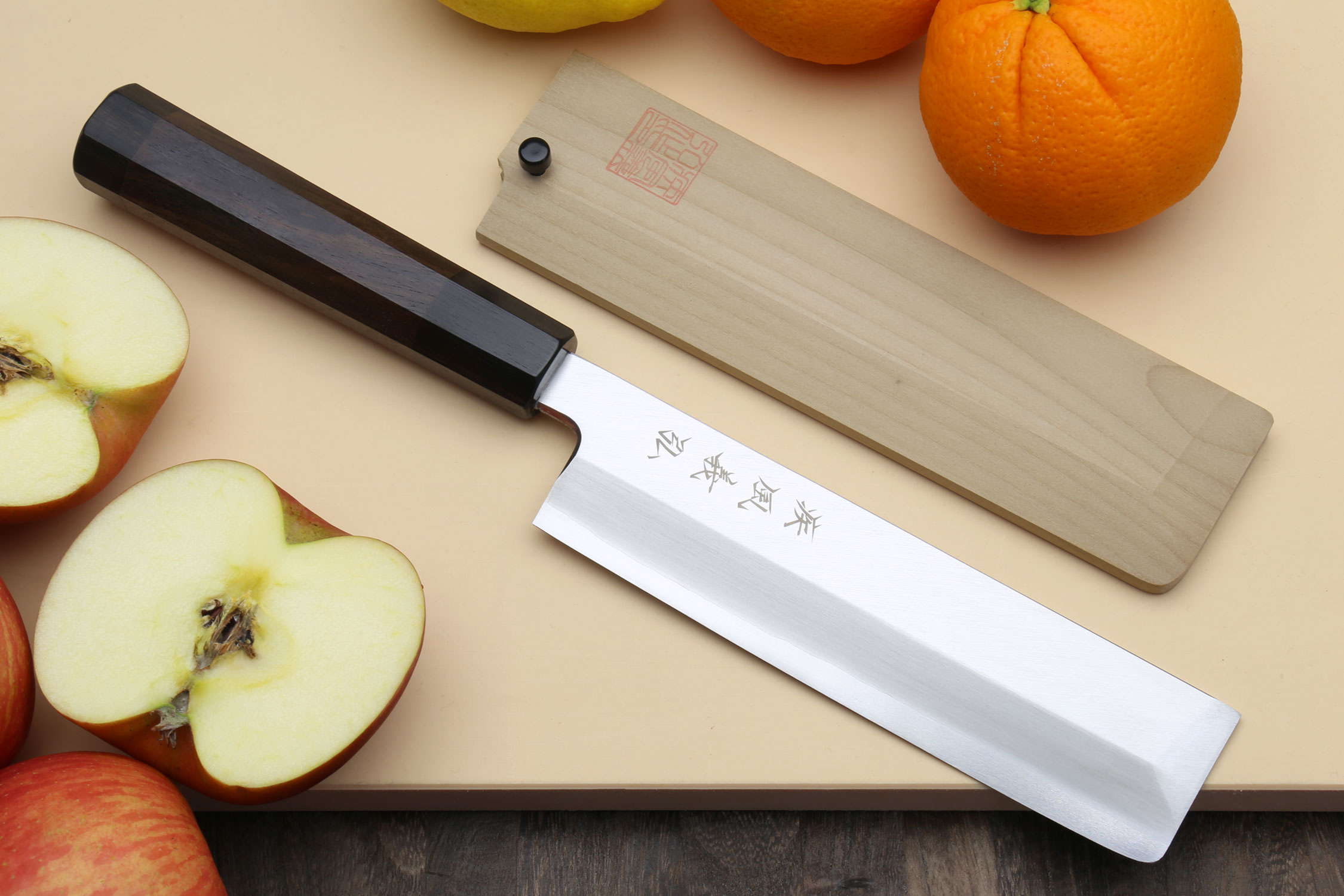
Another difference is that the handle has an elliptical cross-section and a side rib, as well as an unusually wide blade compared to the handle. It is not easy to get used to such a cutting tool, but the result is worth it.
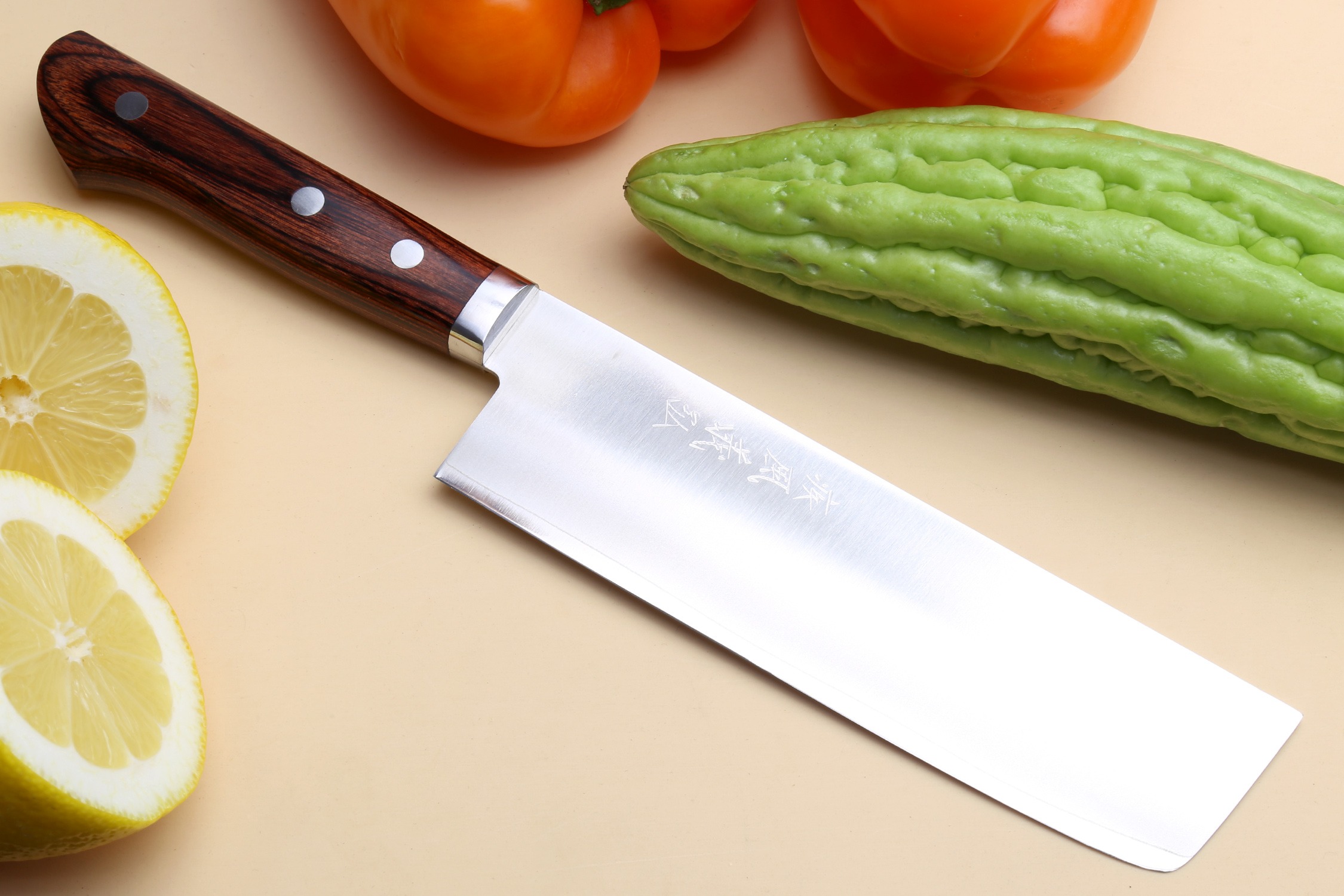
Its heavy weight and very sharp blade provide a “straight” cut without reciprocating movements, which is considered the main feature of the “Usuba”.
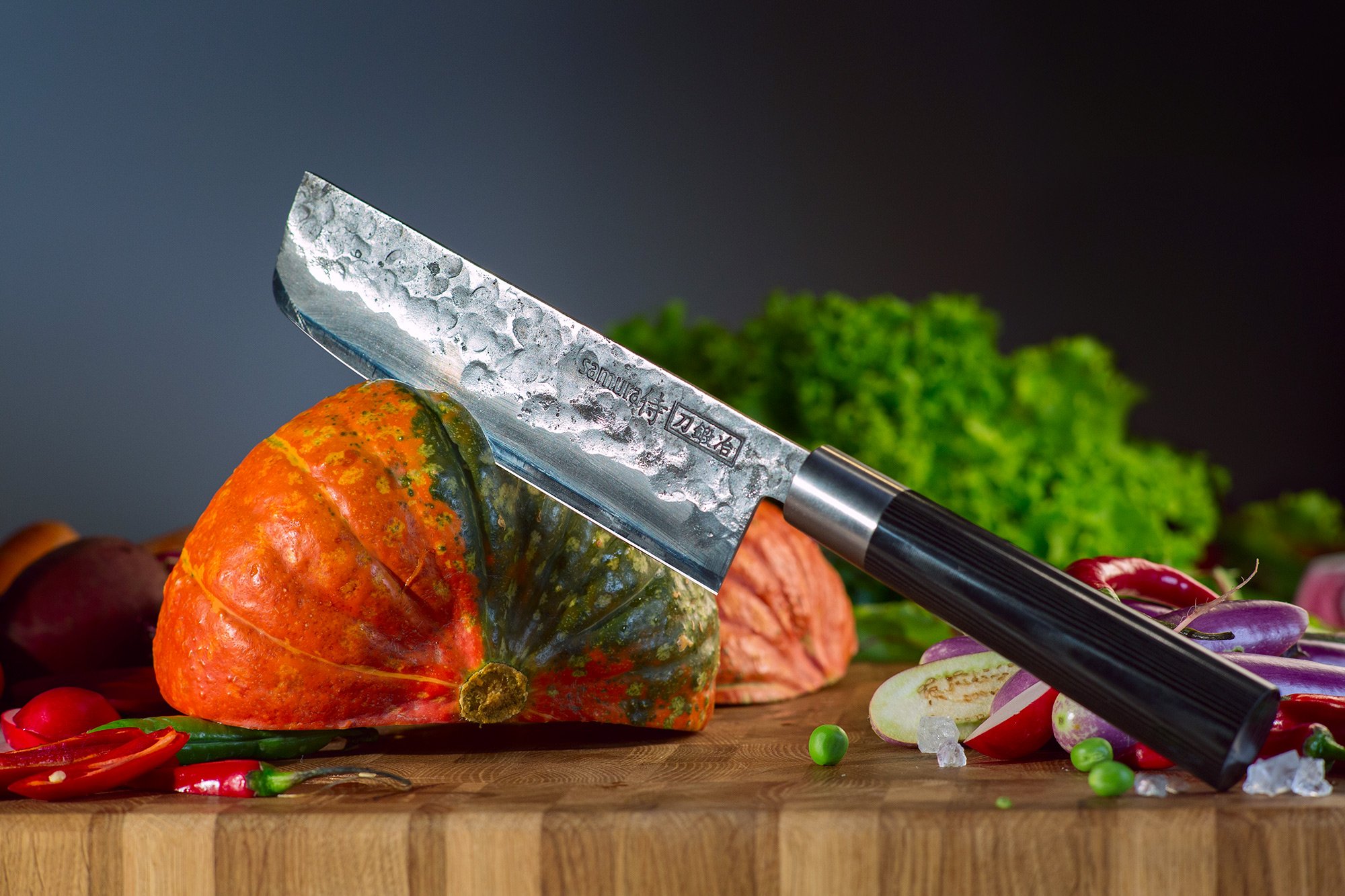
Regional Japanese Models
These are mainly universal models of cutting tools.
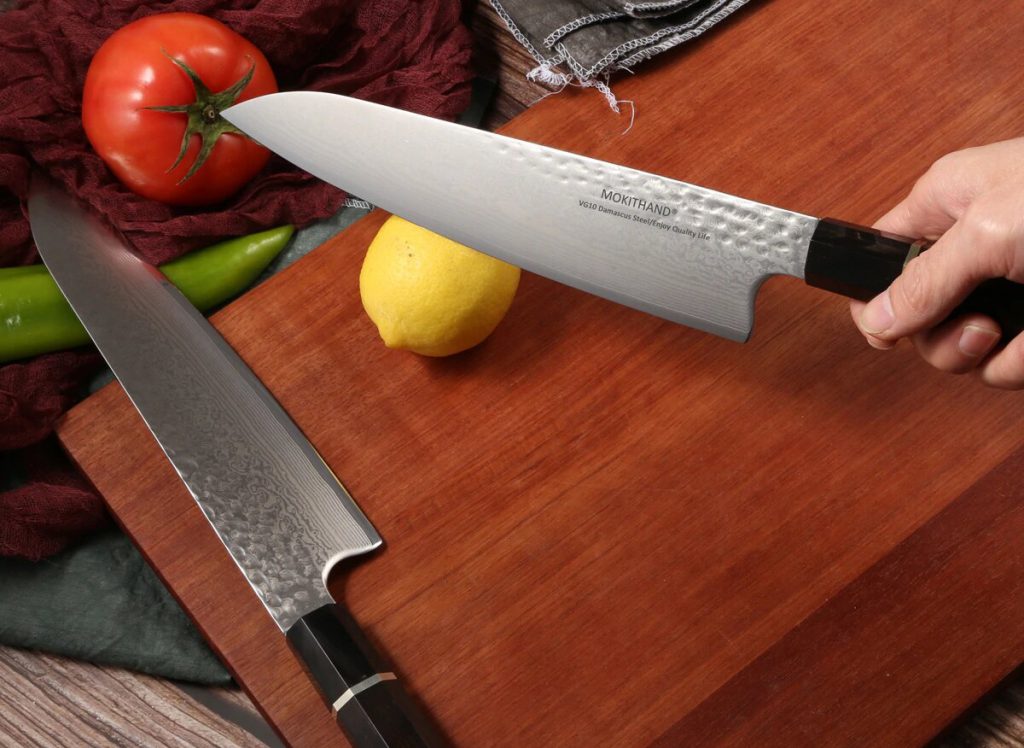
- Hakusaikiri – used for shredding Chinese cabbage.
- Kurimuki is a small, universal fruit and vegetable knife, suitable for peeling chestnuts.
- Chukabocho – the main purpose is cutting meat. This is a universal knife, the Chinese call it "tsai dao". Often, cooks use only this one in their work.
- Kabochakiri – designed for cutting pumpkin.
- Kyabetsukiri is a device for shredding cabbage, but this time it is regular and harder cabbage, not Chinese cabbage.
- Kawamuki – indispensable when you need to peel and beautifully cut vegetables, close to the analogue of a carving knife.
- Nata (ната) – structurally very similar to a European chopping hatchet, necessary for chopping bamboo and wood.
- Ninjikiri is a cutting tool for shredding carrots.
- Negikiri is a cutting tool for slicing leeks. A massive device, the length of which can reach 300 mm.
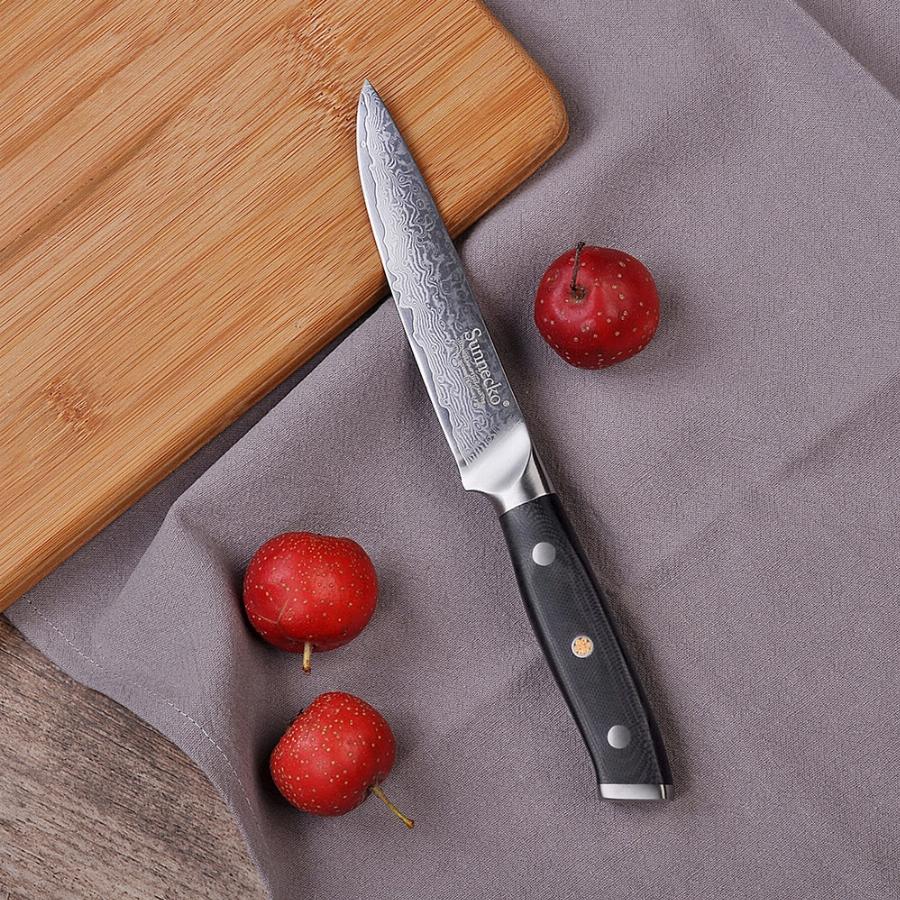
Recommendations for choosing a knife for vegetables and fruits
Even before purchasing a multifunctional vegetable knife, it is important to consider all its characteristics and some factors that affect the duration of its use. Here are some recommendations for choosing.
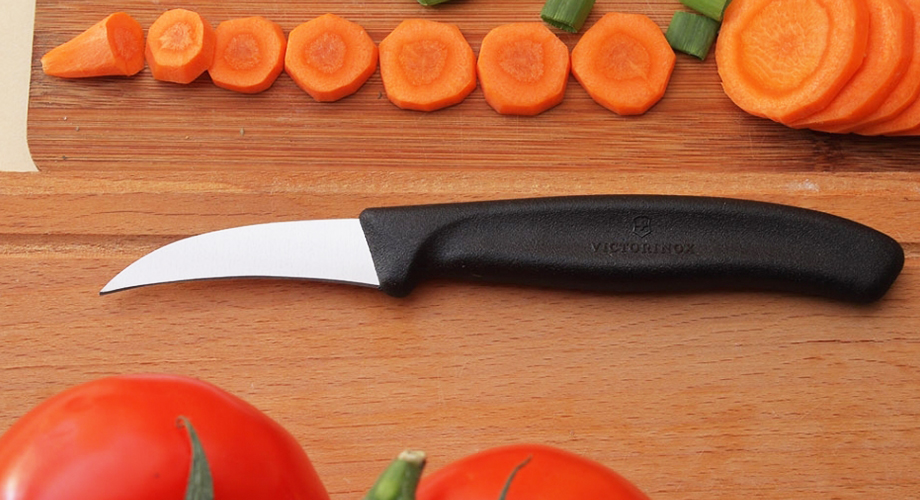
- The blade should be made of durable steel, medium-alloy or high-alloy steel is best suited for this role. The cutting properties of such a knife will be preserved for a long time, which is very important.
- The coating is also important, because the instrument is in a humid environment for a long time. An anti-corrosion coating would be optimal.
- To make the cutting tool convenient to use, it is recommended to evaluate it tactilely before buying. It is better to choose a medium-width device that will not slip in your hand. Another option is a rubber handle coating.
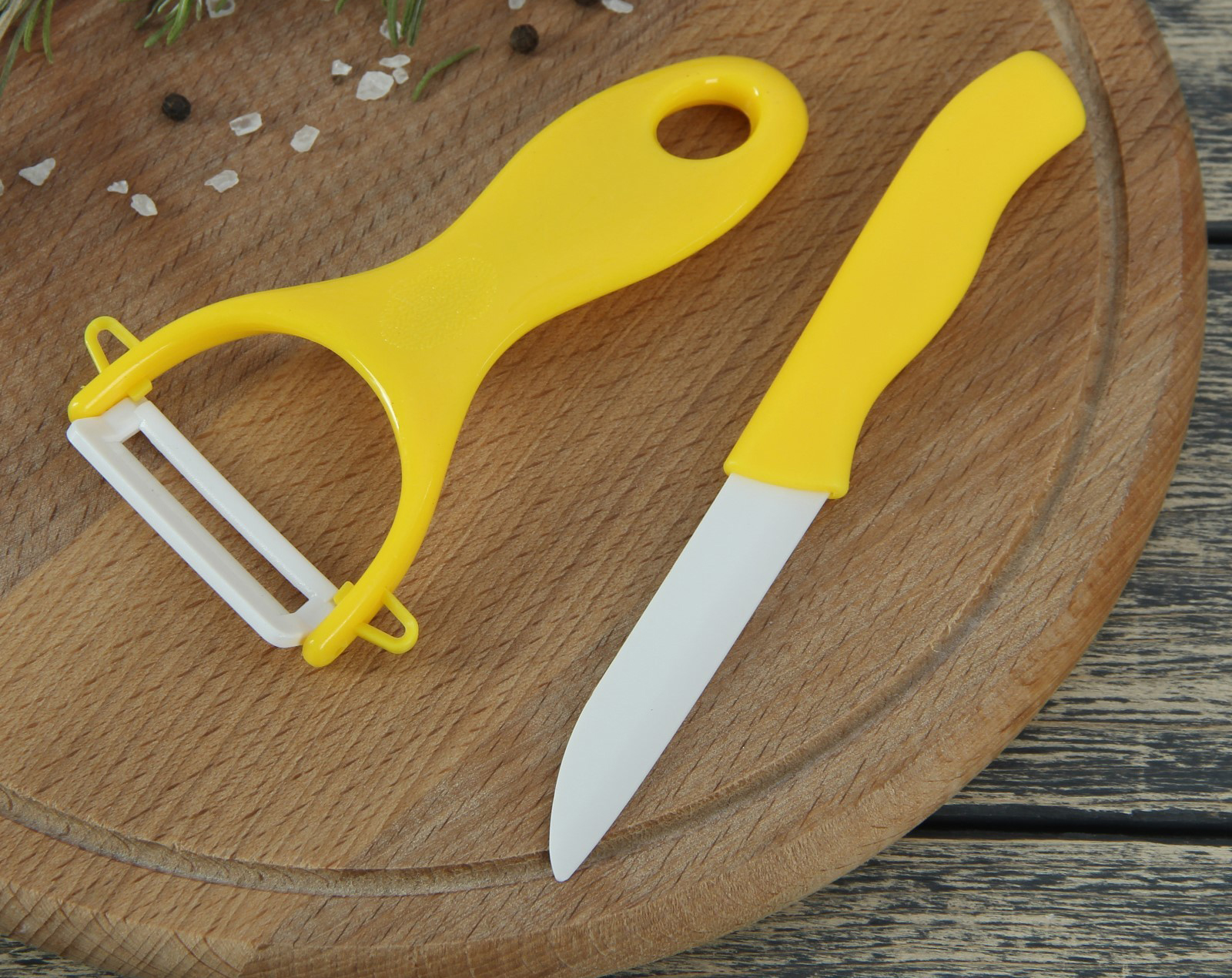
Important! It is worth purchasing cutting tools from proven brands, whose models are made from high-quality materials, do not absorb odors and are highly durable.
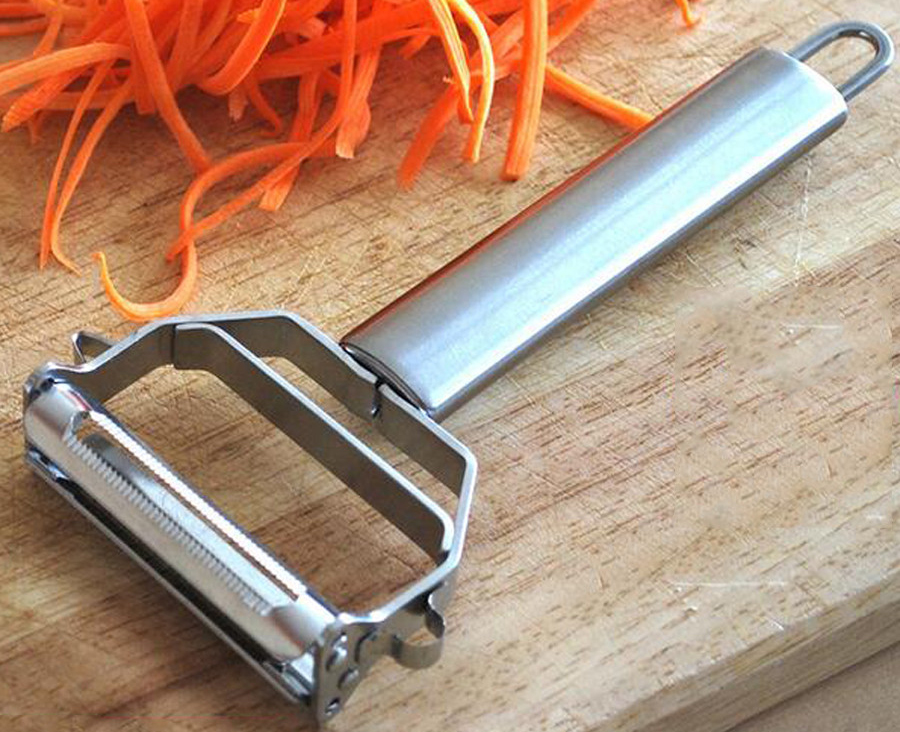
For comfortable work in the kitchen, any housewife needs a high-quality device with a sharp edge. After all, it is because of a dull blade that injuries occur. Some knives for cutting vegetables and fruits in the form of various figures cannot be sharpened at home. In this case, it is better to use the services of specialists.
